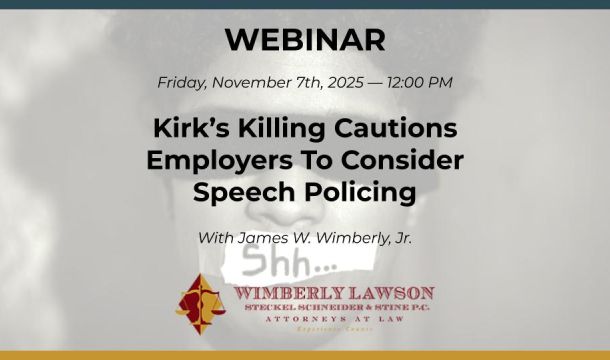OSHA Has Issued Guidance for Returning to Work From COVID-19 Restrictions–Who in Your Workplace Will Make Sure That It is Implemented?
As COVID-19 restrictions ease, businesses are reopening and employees are returning to work. To assist employers and workers in safely returning to work and reopening businesses deemed by local authorities as “non-essential businesses” during the evolving COVID-19 pandemic, on June 17, 2020, OSHA issued some new Guidance on Returning to Work for employers. OSHA tells us that this Guidance does not have the force of law; the “recommendations are advisory in nature, informational in content, and are intended to assist employers in providing a safe and healthful workplace.” Nevertheless, in the event that an employer is faced with an employee complaint to OSHA, a surprise OSHA inspection, or a lawsuit, that employer can only benefit by showing its documented compliance with OSHA’s own “recommendations.”
The Guidance identifies three Phases of reopening and recommended practices for minimizing the spread of COVID-19 for each of them. It also recommends that during all phases of reopening, employers should implement strategies for basic hygiene (e.g., hand hygiene; cleaning and disinfection), social distancing, identification and isolation of sick employees, workplace controls, and flexibilities, and employee training that are appropriate for the particular phase.
How does an employer show its documented compliance with OSHA’s recommendations? The starting point would be to identify a person or department that is responsible for keeping up with day to day compliance with the recommended strategies and practices. For larger companies, this is likely to fall within the responsibility of a safety manager or department. For smaller companies that do not have a dedicated safety professional, think about having someone designated as the “COVID Czar” or something like that (maybe COVID Coordinator if you prefer something less autocratic). Some of the potential responsibilities of the COVID Czar (or Coordinator):
- Document employee training;
- Document all precautions that the company has implemented to prevent the spread of COVID-19, such as taking temperatures of employees and visitors and regular cleaning and disinfecting of the workplace;
- Gently remind others to maintain social distance in the workplace, follow respiratory etiquette, and regularly wash their hands;
- Be a resource for those employees who are not comfortable telling others, particularly superiors, to please maintain social distance or sneeze into their sleeves;
- Keep track of which employees are symptomatic, test positive, are under quarantine, or may have an underlying condition that makes them more vulnerable to COVID-19;
- Ensure that those workers who have recovered from illness follow proper return to work procedures in accordance with CDC guidance;
- If PPE is required for employees, make sure that there is an adequate supply of the appropriate PPE and that employees have been trained to use it properly;
- Ensure that workers are not retaliated against for raising concerns about safety in the workplace; and
- Keep everyone calm.
Needless to say, the COVID Czar must be someone who can keep employee health information confidential. They should also be someone who has enough confidence and authority to recognize and correct employees who are not following established safety procedures and practices.
So–welcome back to work, and be safe out there!

Kathleen J. Jennings is a former principal in the Atlanta office of Wimberly, Lawson, Steckel, Schneider, & Stine, P.C. She defends employers in employment matters, such as sexual harassment, discrimination, Wage and Hour, OSHA, restrictive covenants, and other employment litigation and provides training and counseling to employers in employment matters.
Related Content
Get Email Updates
Recent Content

Update of Work Authorization Immigration Status as of October 8, 2025

Workplace Investigations Largely Shut down, but Courts Remain Open during Shutdown for Now

Kirk’s Killing Cautions Employers To Consider Speech Policing

Trump Nominates Appointments to NLRB and EEOC but Policy Changes Likely to Be Delayed

DOL Launches Self-Audit Programs Designed to Help Employers Improve Compliance

